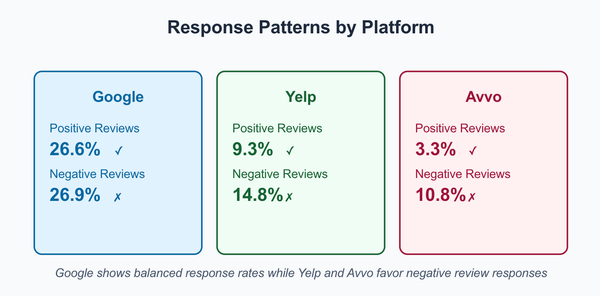What Every Lawyer Needs to Know About U.S. Immigration Law

Immigration law in the United States is one of the most complex and dynamic legal practice areas. Whether you are a lawyer who specializes in immigration or one who occasionally handles cases involving non-citizens, understanding this field is essential. Immigration law affects many individuals, families, and businesses, dealing with sensitive issues such as family reunification, workforce development, and humanitarian protection.
This blog will guide you through the key aspects that every immigration attorney should know about this law in the U.S.
What Agencies Govern Immigration Law in the USA?
The federal government in the U.S. oversees immigration law through several key agencies. Each agency has a specific role, and understanding their functions is crucial for immigration attorneys working in this area:
Department of Homeland Security (DHS)
The Department of Homeland Security (DHS) is at the forefront of managing most of the immigration process. DHS carries out its responsibilities through three main sub-agencies:
- U.S. Citizenship and Immigration Services (USCIS): This agency processes applications for visas, green cards, citizenship, and humanitarian protections like asylum and plays a central role in granting immigration benefits.
- Immigration and Customs Enforcement (ICE): ICE focuses on enforcing immigration laws within the U.S. This includes overseeing detention and deportation and conducting investigations involving non-citizens suspected of violating immigration laws.
- Customs and Border Protection (CBP): CBP’s primary responsibility is managing people's entry into the U.S. It is responsible for securing the borders and inspecting travelers at ports of entry, ensuring that they meet the legal requirements for entry.
Department of State (DOS)
The Department of State (DOS) plays an important role in issuing visas through U.S. embassies and consulates worldwide. The DOS works closely with DHS to regulate the entry and travel of non-citizens, ensuring that individuals meet the visa requirements before coming to the U.S.
Department of Justice (DOJ)
The Department of Justice, through the Executive Office for Immigration Review (EOIR), manages immigration courts and the Board of Immigration Appeals (BIA). EOIR oversees the immigration adjudication process and ensures that decisions made by immigration judges are reviewed fairly by the BIA.
Department of Labor (DOL)
The Department of Labor oversees employment-based immigration. It ensures that foreign workers do not take jobs that U.S. workers should fill. The DOL processes labor certifications, which are required for certain employment-based visas, helping to regulate the U.S. labor market.
How Do Immigration Classifications Impact Legal Rights and Status?
Immigration law classifies individuals into various categories, each with distinct legal rights and status. These classifications determine how individuals interact with the immigration system and what benefits they are eligible for,
Citizens and Nationals
Citizenship is a legal status that offers full rights and protections under U.S. law. The citizens are either born in the U.S. or acquire citizenship through naturalization. Nationals, while also citizens, are typically individuals born in U.S. territories outside the 50 states, like American Samoa.
Non-Immigrants
Nonimmigrants temporarily enter the U.S. on a visa for specific purposes, such as tourism, education, or employment. Some common nonimmigrant visa types include the B-2 visa for tourists, the F-1 visa for students, and the H-1B visa for workers in specialty occupations. Nonimmigrants are not eligible for permanent residence unless they adjust their status.
Immigrants
Immigrants are granted lawful permanent residency, commonly called having a "green card." Green card holders have the right to live and work in the U.S. permanently and can eventually apply for U.S. citizenship after meeting specific eligibility requirements.
Refugees and Asylees
Refugees and asylees are individuals who are granted protection due to a well-founded fear of persecution in their home country. Refugees apply for protection outside the U.S., while asylees apply after entering the country. Both groups may receive permanent residence status and can eventually apply for citizenship.
Undocumented Individuals
Undocumented individuals are non-citizens who are in the U.S. without lawful status. They may be subject to removal (deportation) proceedings and often face significant legal challenges when trying to gain lawful status. In some cases, they may be eligible for relief through asylum, family-based petitions, or other forms of protection.
Want More Clients? LawyersRating.fyi, is the U.S.’s premier directory for immigration attorneys. Showcase your expertise with verified reviews and connect with clients who need your legal services. Increase your practice’s visibility and grow your client base—sign up today!
Understanding Legal Framework and Sources of Authority
Constitutional principles, federal statutes, case law, and executive actions shape immigration law. Understanding the sources of authority that govern immigration is critical for legal practitioners.
Constitutional Basis
The U.S. Constitution grants the federal government the exclusive authority to regulate immigration. This principle was established by the U.S. Supreme Court in the 19th century, which confirmed that immigration laws and policies are under the control of Congress and the President. This "plenary power" allows the government to regulate immigration comprehensively.
Several important statutes form the backbone of U.S. immigration law:
- Immigration and Nationality Act (INA): The INA is the primary legal framework governing immigration policy, including visa issuance, deportation proceedings, and the naturalization process.
- Refugee Act of 1980: This Act provides the legal framework for refugee and asylum protections, enabling individuals fleeing persecution to seek refuge in the U.S.
- REAL ID Act: This Act aims to strengthen security measures for identification and affects the documentation requirements for non-citizens.
Influential Case Law
Court decisions have shaped and continue to influence immigration policy. For example, the Chinese Exclusion Case of 1889 reinforced federal authority over immigration. More recent rulings, such as those regarding the detention of non-citizens and the scope of executive discretion in immigration matters, continue to impact legal interpretations and practices.
What Should Lawyers Know About Employment-Based Immigration?
Employment-based immigration is a significant aspect of U.S. immigration law. Foreign workers may enter the U.S. through various visa categories. Navigating these visas requires understanding the specific criteria and the application process. Immigration lawyer candidates must also know the growing trend in U.S. immigration and stay up-to-date according to changes in rules and regulations.
Non-Immigrant Work Visas
Several non-immigrant work visas allow foreign nationals to work temporarily in the U.S.
- H-1B Visa: For workers in specialty occupations requiring a bachelor's degree or higher.
- L Visa: For intracompany transferees, foreign workers are allowed to be transferred to U.S. offices of their current employer.
- O Visa: For individuals with extraordinary science, arts, or athletics abilities.
- TN Visa: This is for professionals from Canada and Mexico under the United States-Mexico-Canada Agreement (USMCA).
Immigrant Work Visas
Employment-based green cards are divided into five preference levels:
- EB-1: For individuals with extraordinary abilities, outstanding professors, or multinational executives.
- EB-2: For professionals with advanced degrees or exceptional abilities in business, arts, or sciences.
- EB-3: For skilled workers, professionals, and unskilled laborers.
- EB-4: For special immigrants, including religious workers and certain international employees.
- EB-5: For investors who create jobs in the U.S. through substantial investments.
Top 3 Common Challenges in Immigration Law
Immigration law involves numerous challenges, some particularly common and require careful legal strategies.
Detention and Removal
One of the most significant challenges in immigration law is the detention and potential removal (deportation) of non-citizens. Immigration detainees do not have the same constitutional protections as criminal defendants, such as the right to a speedy trial. As a result, immigration attorney often needs to request bond hearings and challenge prolonged detention to secure the release of their clients.
The intersection of Criminal and Immigration Law
The intersection between criminal and immigration law, often called "immigration," presents another challenge. Certain criminal convictions can trigger deportation, inadmissibility, or the loss of lawful status. Lawyers must collaborate with criminal defense attorneys to manage these complex issues and minimize the potential immigration consequences.
Policy Fluctuations
Immigration policies change rapidly, and lawyers need to stay informed. For those looking to find the best immigration lawyer in NYC to see complex legal challenges, staying updated with policy changes is essential.
4 Best Practices for Lawyers Handling Immigration Cases
Handling immigration cases requires skill, expertise, and up-to-date knowledge. Here are four best practices for lawyers:
- Stay Informed: Immigration law is constantly evolving. Lawyers should monitor updates from USCIS, DHS, and other agencies to stay ahead. Subscribing to legal newsletters and attending seminars can help keep you informed.
- Collaborate with Experts: Immigration law is complex. For difficult cases, it's beneficial to work with experienced immigration attorneys, especially in areas like asylum claims, deportation defense, or employment-based visas.
- Educate Clients: Clients often have a limited understanding of the immigration process. Lawyers should take time to clearly explain legal procedures, timelines, and potential outcomes to manage client expectations effectively.
- Address Ethical Concerns: Immigration law has strict regulations about who can represent clients. Immigration attorney must avoid unauthorized practice of law and adhere to professional conduct rules at all times.
Tired of competing for clients? Try a new approach!
Immigration law is a challenging yet rewarding area of legal practice that demands continuous learning and flexibility. By gaining a deep understanding of the legal system, collaborating with knowledgeable professionals, and keeping up with policy changes, attorneys can offer vital support to their clients.
Looking to grow your practice? Join the leading immigration attorney directory in the U.S. on LawyersRating.fyi! Connect with clients actively searching for reliable legal help and showcase your expertise with verified reviews. Get listed now to increase your visibility and expand your client base in this competitive field. Your next opportunity could be just a click away!





